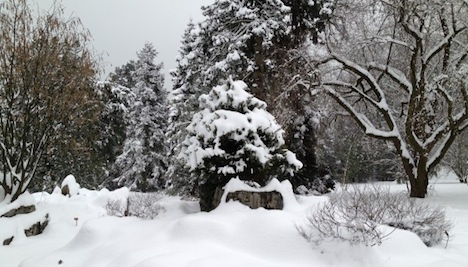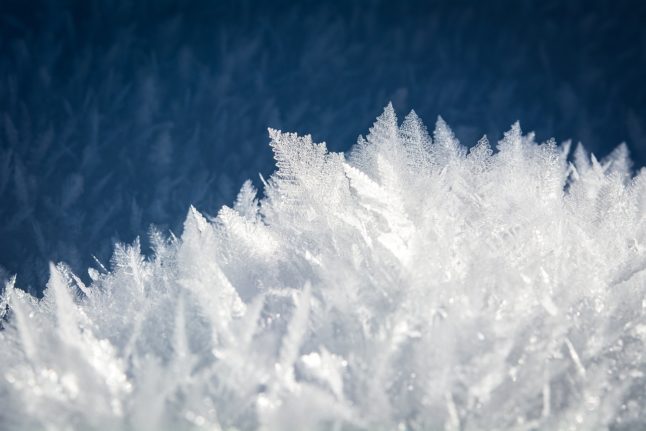Around 20 centimetres fell on the Geneva area on Monday morning as a relatively warm, moist weather system collided with cold air, MeteoSwiss, the national weather office said.
Geneva airport opened an hour later than usual at 7pm but closed half an hour later because of the heavy snow accumulation, the ATS news agency reported.
Planes starting taking off and landing at 10.15am — with some delays — after 40 flights were cancelled, the airport said.
In Geneva buses and trams were unable to operate normally on many routes, forcing some commuters to walk into work.
Luckily, the volume of traffic was reduced because of February school holidays which began in Geneva on Monday.
The Tribune de Genève reported on line that almost 2,500 homes lost power Monday night in an area between Thônex and Jussy after a branch weighed down by snow fell on an 18,000-volt transmission line.
Electricity was restored to most homes by 9pm.
In the canton of Vaud, cantonal police reported around 25 motor vehicle accidents involving significant damage on snow-covered roads.
In Lausanne, bus service on some routes was suspended during the morning because ploughs were unable to clear the roads quickly enough.
MeteoSwiss said it expected a further 10 to 15 centimetres of snow early Tuesday in the Lake Geneva area.
Snow is forecast across the Alps and the Alpine foothills.
The weather service issued a level three (orange) warning for heavy snowfall from Geneva to areas north of Neuchâtel in the Jura and Fribourg, as well as the Vaud Alps.
The snow follows a period of extreme cold in parts of Switzerland on the weekend.
Glattalp in the canton of Schwyz recorded a temperature of minus 36 degrees on Sunday morning, a record for so far this winter.



 Please whitelist us to continue reading.
Please whitelist us to continue reading.
Member comments